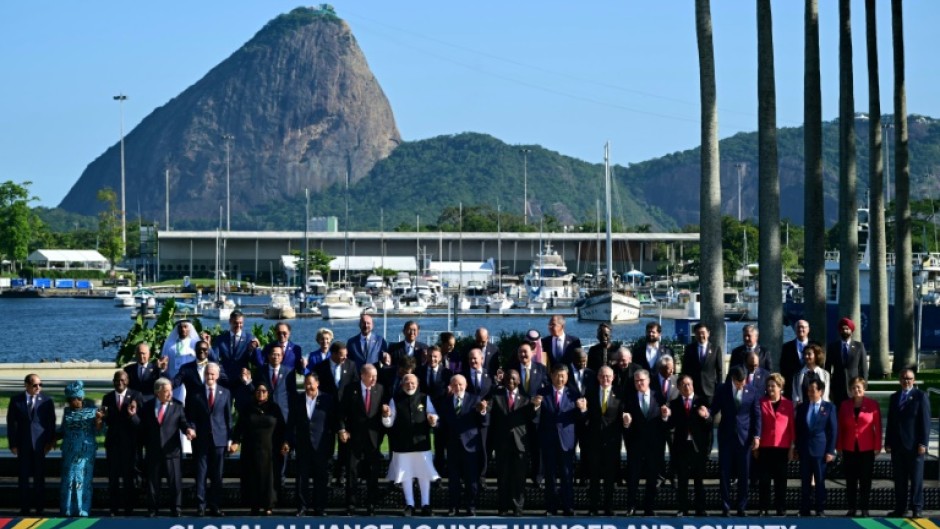BRAZIL - G20 leaders met in Rio de Janeiro on Monday for talks on climate change, ongoing wars in Ukraine, Gaza and Lebanon, and more, at a forum that highlighted differences between world powers but also delivered some successes.
Here are five key takeaways from the summit:
- No climate breakthrough -
Hopes were high that G20 leaders would jumpstart stalled UN climate talks taking place in Azerbaijan.
In their final declaration, however, they merely recognized the need for "substantially scaling up climate finance from billions to trillions from all sources."
Crucially, they did not say who would provide the trillions.
They also did not reiterate a commitment made at the COP28 climate talks in Dubai last year for a "just, orderly, and equitable transition" away from fossil fuels.
"They haven't stepped up to the challenge," Mick Sheldrick, co-founder of the Global Citizen campaign group said.
- Ukraine war -
The war in Ukraine dominated discussions at the G20, a day after the United States gave Kyiv the green light to strike Russian territory with American-supplied long-range missiles.
Russia vowed a "response" if hit.
Chinese President Xi Jinping, who together with Brazil has been pushing for Kyiv to enter peace talks with Russia, urged the G20 to help "cool" the war.
In their final statement, G20 leaders said they welcomed "all relevant and constructive initiatives that support a comprehensive, just, and durable peace" in Ukraine.
While condemning, as at last year's G20 summit, the "threat or use of force to seek territorial acquisition," they made no mention of Russian aggression.
- Lebanon, Gaza ceasefire calls -
The leaders of the G20 - which mixes steadfast Israel allies such as the United States and Argentina with countries like Turkey that are more supportive of Palestinians - called for "comprehensive" ceasefires in both Gaza and Lebanon.
They said the Gaza ceasefire should be in line with a US-proposed UN resolution calling for a permanent ceasefire in the territory in return for the release of all hostages by Hamas.
It also called for a Lebanon ceasefire "that enables citizens to return safely to their homes on both sides of the Blue Line" that separates Lebanese and Israeli armed forces.
- Tax the super-rich -
The G20 endorsed the idea of cooperating to make sure "ultra-high-net-worth individuals are effectively taxed," delivering a victory to summit host Brazilian President Luiz Inacio Lula da Silva.
It said though that such cooperation should be "with full respect to tax sovereignty" and involve "debates around tax principles" as well as coming up with anti-avoidance mechanisms.
An economist specializing in inequalities who was tapped by the Brazilian G20 presidency to write a report on the issue, Gabriel Zucman, hailed the "historic decision."
- Alliance against hunger -
One of the issues dearest to President Lula was forging a global alliance against hunger, and he received an early success by launching that initiative at the start of the summit, getting 82 countries to sign on.
The alliance aims to unite international efforts to provide financing in the campaign against hunger, and to replicate programs that have proved successful in some countries.
The goal is to reach half a billion people by the end of the decade, reducing what Lula - who grew up in poverty - has called a preventable "scourge that shames humanity."

